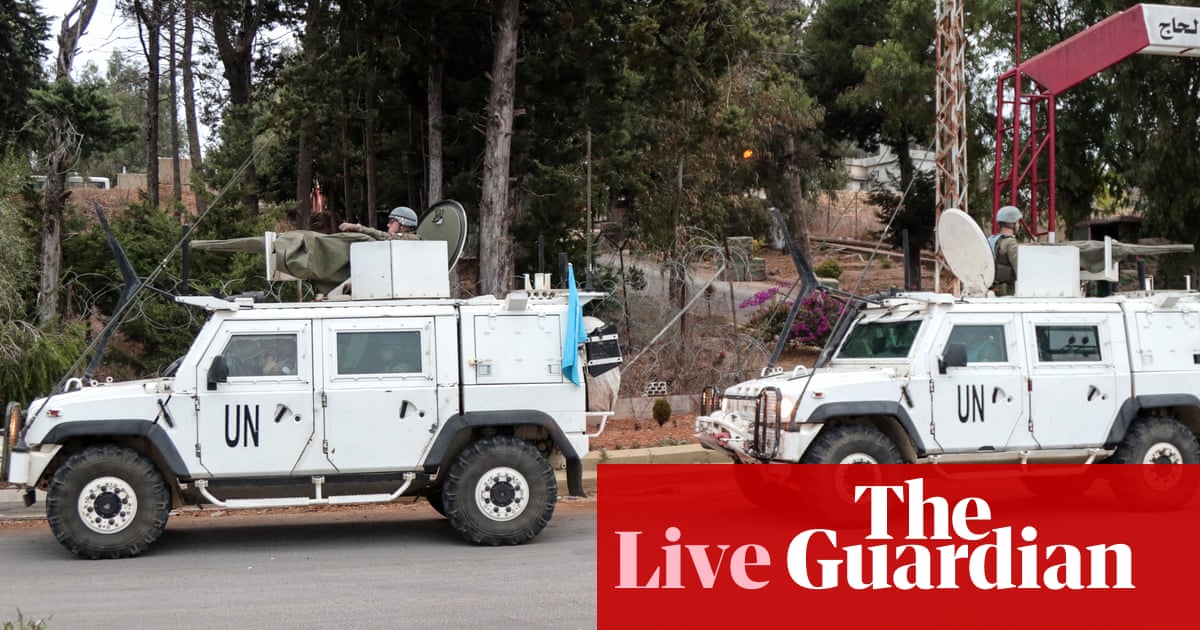- cross-posted to:
- [email protected]
- cross-posted to:
- [email protected]
A spokesperson for UN peacekeepers in Lebanon on Saturday said that Israel had requested it leave its positions in south Lebanon where Israel is clashing with Lebanese militant group Hezbollah, but they had refused.
They asked us to withdraw “from the positions along the blue line … or up to five kilometers (three miles) from the blue line,” UN Interim Force in Lebanon (Unifil) spokesperson Andrea Tenenti told Agence France-Presse (AFP), using the term for the demarcation line between both countries. “But there was a unanimous decision to stay,” he said.



The UN isn’t a military organization. It is a peacekeeping org and as such is not bound by the same operational rules as an army would be.
The soldiers are sent from the militaries of member countries.
Doesn’t mean they have the same obligations as normal soldiers. Like unifil soldiers can’t engage in offensive attacks unlike soldiers in the members countries armies. Their role is to monitor rather than engage militarly. I don’t even think the country members have also the authority to order them to move due to the contract
That does not mean they work under military rules. They are under UN control, and the UN is a peacekeeping force. It is not a nation state military force.
The UN isn’t, but the soldiers themselves are, and are acting for their respective member state military:
https://en.wikipedia.org/wiki/United_Nations_peacekeeping
That says the UN controls the troops.
They are not an army, they are a peacekeeping force.
They are also under UN rules, not their own nation’s.
If the UN decides they can choose to stay or leave, that’s what happens.
They are members of their own state militaries acting in an operation headed by the UN.
They have ROEs and similar orders handed to them.
kagis
Here’s a sample UN peacekeeping RoE for a recent exercise simulating an actual operation.
https://www.forsvarsmakten.se/siteassets/english/swedint/engelska/swedint/courses/unsoc/d-29-roe-incl-annex-a-d.pdf
It’ll lay out the conditions under which one attacks and to what degree peacekeepers should hold maintain a position given the possibility that it is attacked, who they are authorized to engage, and such.
In this situation, you’ve got an active conflict underway between Hezbollah and Israel. Like, this isn’t going to be a “there’s nobody shooting at each other” situation. My point is that normally, countries are pretty particular about the lines for international conflict, and I’d expect an RoE to have specified whether they are expected to maintain positions during an evacuation order or not.
I work for company A. Company A is based in Florida, USA. I work in a warehouse owned by Company X, and staffed by Company Z.
As an employee of Company A, I do have my own conduct rules.
That said, when working in Company X’s warehouse with Company Z’s people, I have a different set of conduct rules, some of which conflict with Company A’s rules. But since I’m currently on contract with and on the premises of Company X and Z, their rules take precedent. Company A understands this and is okay with it. I will not be fired.
I am not being condescending, and genuinely hope this helps it click for you.